Is my dog sick?
It’s a question no canine owner wants to worry about, but it happens to the best of us.
You can wrap your dog up in cotton wool, feed them all the right food, and ensure they get adequate play and sleep, but they can still get unwell.
As a loving pet parent, it’s important to be on the lookout for potential symptoms and warning signs that your dog might not be feeling their best.
Knowing and understanding these early indicators can help you seek veterinary advice quickly if necessary.
In this article, we go over 18 warning signs your dog is sick so you can get them the help they need before it’s too late.
Bad Breath
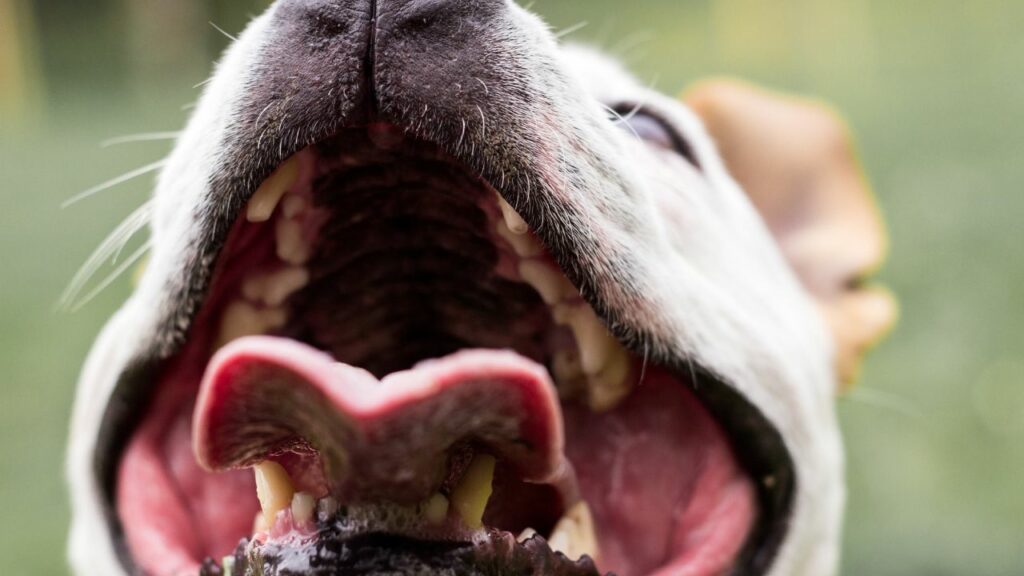
This could mean anything from an upset stomach or poor oral hygiene to serious dental issues such as abscesses, fractured teeth, infection, or periodontal disease.
Many of these ailments can cause other health issues if they’re not addressed early on.
And all of them will benefit from the further investigation with your vet.
By brushing your dog’s teeth regularly, feeding them an appropriate diet as well as bringing them in for regular vet checkups, these issues can easily be avoided and managed if they do arise.
Plus, your canine companion will have minty fresh breath that both you and your furry friends can enjoy!
Lethargy Or Extreme Energy
If you’ve ever noticed your pup looking sluggish or overly energetic, it could be a warning sign that something is off with their health.
Lethargy in dogs can be caused by anything from chronic health conditions to serious illnesses and injuries.
Similarly, excessively high energy can be an indicator of underlying diseases.
Contact your vet if you notice an excessive increase or decrease in activity level.
Vomiting Or Diarrhea

If your beloved companion is suffering from either of these symptoms, it’s critical to take them to the veterinarian as soon as possible.
Also, pay special attention to their eating and drinking habits in addition to changes in energy levels.
These can all provide vital clues about any possible underlying health issue.
Loss Of Appetite
An unexplained loss of appetite is often an indicator that the animal might be sick and in need of medical attention.
It could be due to problems such as dietary issues, injury, internal parasites, serious illnesses, or metabolic imbalances.
If your pet shows signs of reduced appetite and eats less than usual for more than one day, it is best to seek professional vet help to determine the cause.
Changes In Behavior

Noticing changes in your dog’s behavior is one of the earliest indicators of sickness.
Pay attention to any sudden and drastic shifts, such as a lack of energy, depression, or a change in appetite.
Remember that animals are very good at hiding their pain—it’s part of their survival instinct.
So look out for less obvious signs, such as excessive yawning or licking.
If you believe your pet is exhibiting strange behaviors for no apparent reason, it might be time to take them to the vet for screening.
After all, catching an illness early could make the difference between life and death, so it’s important to keep tabs on their health.
Excessive Drinking
Excessive drinking is often considered an early warning sign that something might be wrong with your pup.
Dogs who are feeling ill or in pain may drink so much water that they become unquenchable thirst.
This is causing them to drink to the point where they just can’t seem to get hydrated.
If you notice your pet drinking excessively, it’s best to consult with a veterinarian as soon as possible..
Increase Or Decrease In Urination
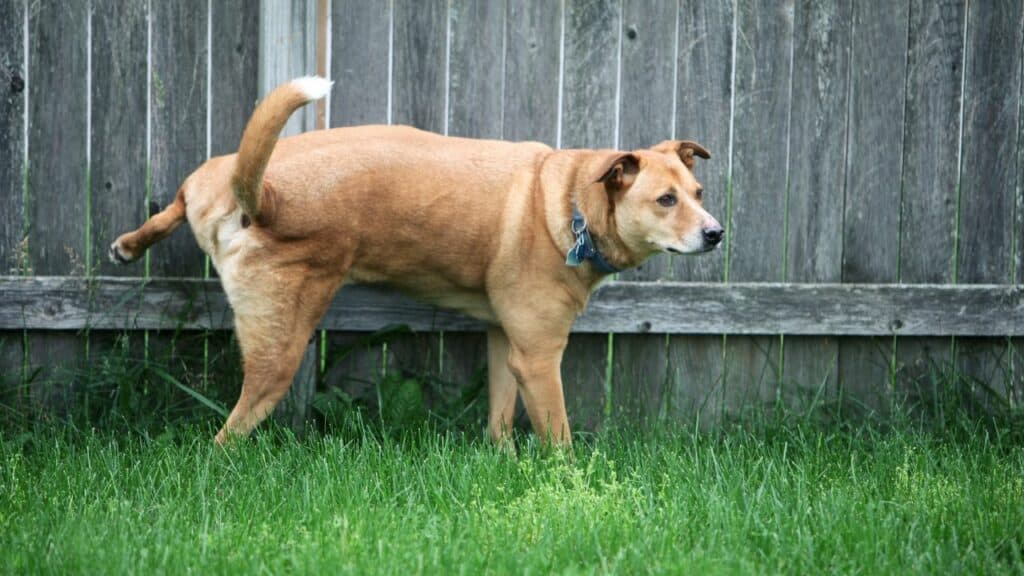
If your pup is starting to have more frequent, or conversely, fewer bathroom breaks than normal, it could be a sign that something isn’t quite right.
Any unexpected change in urination can often serve as an indicator of underlying health issues.
Contact your vet, and don’t wait for a regularly-scheduled appointment.
Even if the changes seem minor and harmless, it’s always wise to get them checked out as soon as possible for peace of mind.
Hair Loss/Itchy Skin
If your dog has been scratching and itching its skin more often than usual that might be a warning sign that your pup is not feeling well.
Same goes for if it has been seemingly losing hair on certain areas of its body without any other visible signs of injury.
Hair loss or itchy skin can indicate various types of ailments in dogs, from allergies to fungal and bacterial infections.
It is advisable to keep an eye on your pet’s health and seek medical advice from your vet whenever you notice signs such as these.
Unexplained Weight Loss/Weight Gain
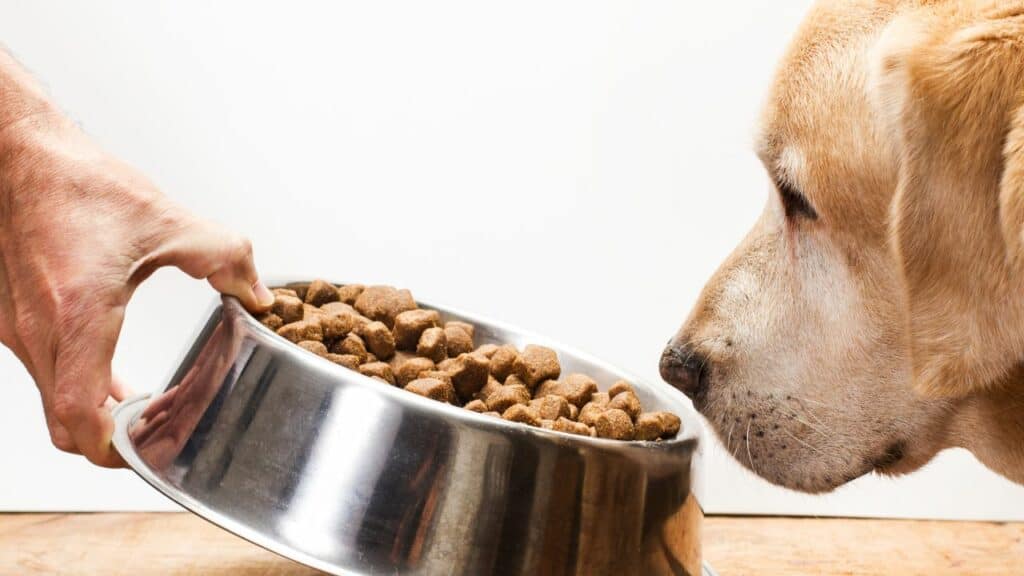
Unexplained weight loss or weight gain in a dog can be a warning sign that something is wrong with their health.
Pet owners should pay close attention to any sudden changes in their pet’s weight, as it could be a symptom of an underlying medical issue.
Disorders like cancer, diabetes, and thyroid issues can cause abnormalities in appetite.
Pet owners should take steps to ensure their pet maintains a healthy.
Coughing, Sneezing, And Other Respiratory Problems
Keeping a watchful eye on any changes in your pup’s normal behavior is essential to helping them stay healthy.
One of the most common signs that something may be wrong with your furry friend is coughing, sneezing, and/or other respiratory problems.
Since these signs can be associated with more mild issues such as allergies or kennel cough, it’s always wise to take your pup to a vet if you are concerned.
Overeating
Overeating in a dog can be an indication that it is in poor health.
Generally, dogs regulate their own food intake pretty strictly and do not need to be served large portions.
If your pooch suddenly seems to want more than its normal serving size, it may be due to a medical issue.
Common causes of overeating in dogs include stress, thyroid problems, diabetes, or digestive issues such as gastritis or intestinal parasites.
If your pup is overeating and you are unsure why, take them to the vet.
They will be able to assess any underlying health concerns and get your pet back on track.
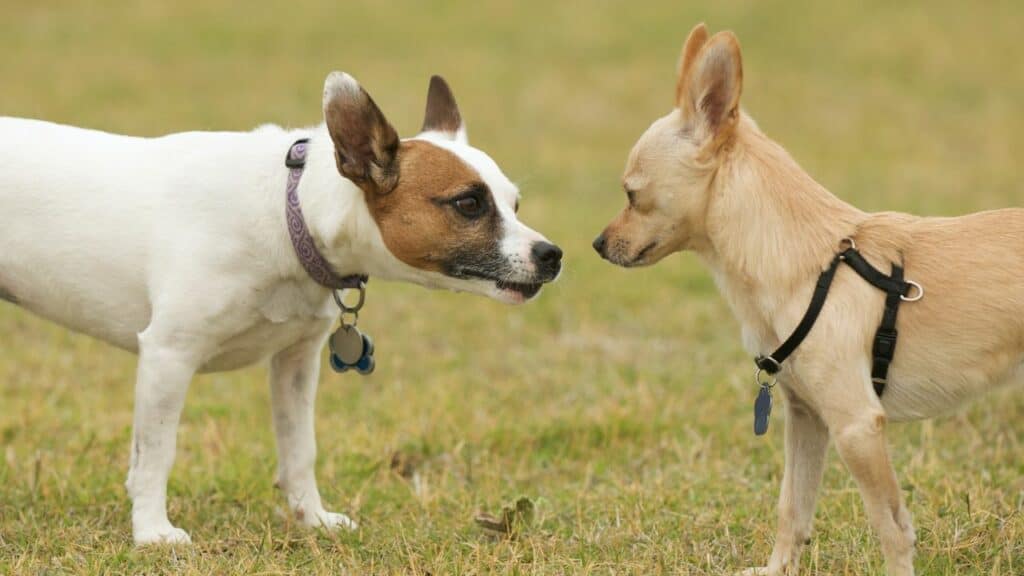
Lack Of Social Interaction
Dogs are social creatures, so when they interact less than usual with humans and other animals, it can be a sign of potential illness.
Although a less social behavior could occasionally be chalked up to age or personality change, if any type of physical symptoms appears in unison, then it may be indicative of a greater health concern.
If your dog is avoiding interaction more often than normal for their particular breed, it’s wise to pay a visit to the vet for a thorough checkup.
Pawing At The Mouth, Drooling Excessively, And Having Difficulty Swallowing
If you observe your beloved pup displaying any of these symptoms:
- pawing at their mouth
- drooling excessively
- having difficulty swallowing
then they may be in distress and could be unwell.
If your dog is exhibiting any of these signs, even if just mildly, you should contact the vet with urgency.
With the right care, assistance, and expert advice, your furry friend can make a full recovery.
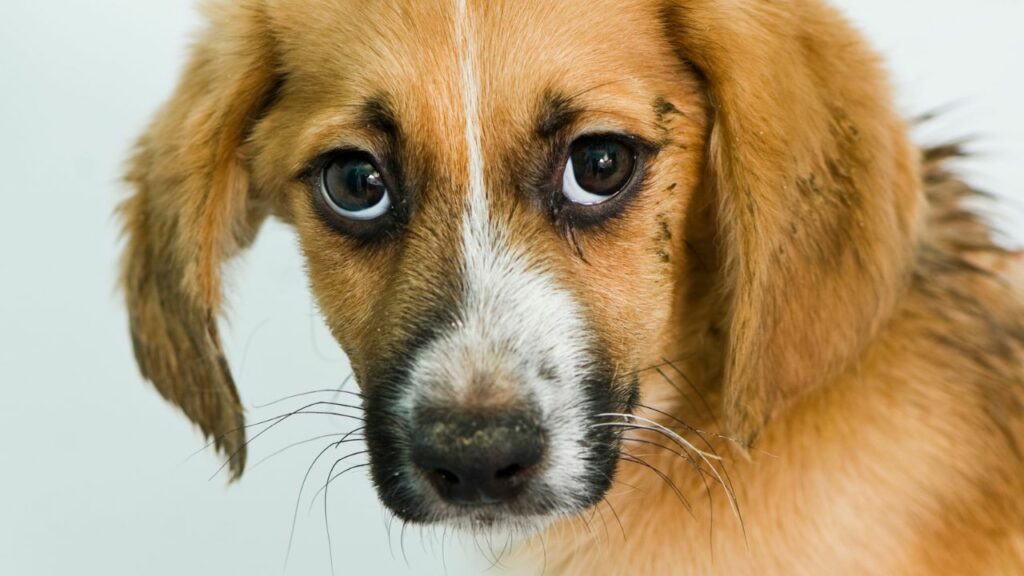
Seizures And Tremors
Seizures and tremors in your dog can be frightening to witness, but they may be warning signs that your pup is not feeling well.
If your furry friend does have a seizure or starts trembling, it is important to recognize this as a sign of illness and to take them to the vet for further examination.
Seizures can be caused by several factors, from genetic conditions and neurological issues to poisoning or infections.
Tremors can indicate an issue with the musculoskeletal system or liver problems.
Bleeding From Any Part Of The Body
Owners should be aware of bleeding from any part of their dog’s body, as it is often a warning sign that their pet may be unwell.
It’s important not to ignore such signs and get medical attention for your pup as soon as possible to help them overcome their illness.
It is also a good idea to keep a close eye on your dog for any further signs, such as lethargy or loss of appetite.
These can indicate underlying health conditions that should be addressed by a vet immediately.
Remember, taking an active role in monitoring for warning signs can make all the difference in keeping your pup safe, healthy, and happy!
Trouble Walking Or Climbing Stairs
The trouble with walking or climbing stairs is an indication that something isn’t quite right with your pup.
Whether it’s increased difficulty in rising, striving to climb a flight of stairs unsuccessfully, or difficulty walking without limping, these sudden changes in your dog’s normal behavior should not be ignored.
Issues like arthritis and decreased muscle strength can be major factors leading to trouble walking and climbing stairs.
While some of these cases require a visit to the vet for diagnosis and treatment, other things, such as dietary supplements or exercises, may help.
Therefore, if you notice even slight changes in your beloved dog’s locomotion, consulting with a veterinarian is essential to ensure proper care for their health needs.
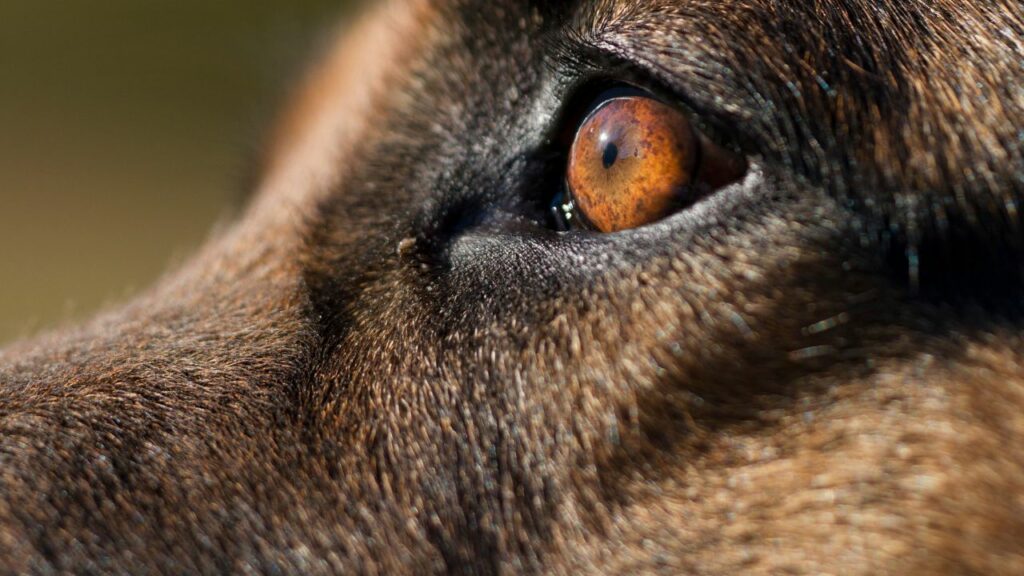
Dry, Red, Or Cloudy Eyes
If your pooch’s eyes appear dry, red, or cloudy, it may be a sign of an underlying health issue.
This eye condition can be caused by allergies, bacterial or viral infections, corneal ulcers, distemper, glaucoma, or head trauma.
Though most cases aren’t serious and can be treated quickly with anti-inflammatory medication, it’s best to get your pup seen as soon as possible to ensure a speedy recovery and optimal health.
Pale Gums
Pale gums on a dog can be an alarming sign that it may be unwell.
While it’s not always a sign of a serious illness, it’s important to note the color change because many dog illnesses manifest visually first.
Your dog’s pale gums after eating, drinking, or resting are cause for concern.
If your pet has pale gums but no other symptoms, consult your vet to diagnose the problem and begin treatment.
Before You Go…
You now know the signs your dog is sick.
If you want to learn more, read the following article too!


